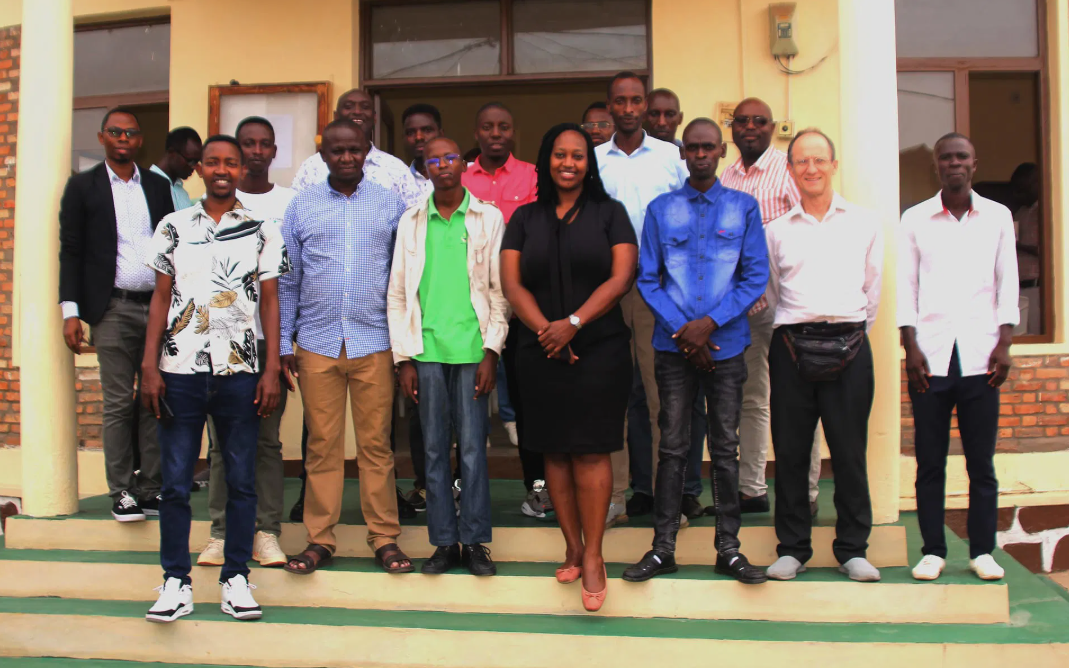A Fresh Start: Building African liberal Christian and Unitarian communities that address the opportunities and challenges in Africa and make friends globally.

From 31 October to 3 November, African Unitarian Leaders gathered in Bujumbura, Burundi, for the first time in eight years.
Three main themes were covered: (1) Similarities and differences between Unitarian Universalism and African Spirituality; (2) Crafting worship services that embrace African culture and speak to the local context; and (3) Formation of a leadership group that can continue to harness the energy online once the leaders return to their various homes.
The presentations were inspiring, and the conversations that followed were enlightening.
The creativity of the participants in developing alternative worship formats was encouraging.
During the discussion to form a leadership team, Mwibutsa Ndajagimana, Dominique Nsengiyumava (both from Burundi), Justine Magara, Ester Mukera (both from Kenya), and Gur Mouanga and Roux Malan (both from South Africa) were present.
It was decided that Mwibutsa (facilitator), Justine, Gur, and Roux would make up the future Pan-African Unitarian Leadership Team, with the option to co-opt others to assist with specific projects.
Unfortunately, Ester could not be included because she had recently accepted the position of UU Global Network Facilitator. Hopefully, in the future, the team will be more gender-equal.
Soon after their return, the leadership team met online and identified the following areas that need attention:
- Training of lay leaders and ordained ministers who are active members of existing African Unitarian communities. A focus on younger leaders will be beneficial, as the older generation finds it difficult to fully embrace liberal religion due to being conditioned from an early age in traditional Christian beliefs.
- Conducting a survey among existing communities to better understand who they are, how they function, and the level of training of their leaders.
- Support for individuals who have a vision to plant new Unitarian communities in their countries.
- Helping new leaders reinterpret the Bible in ways that are more inclusive and move away from patriarchy, fear-based beliefs, and punishment, as Africa has been deeply influenced by Western Christian belief systems.
- International collaboration to share experiences and resources with other Unitarian communities. It was agreed that external interventions to boost the development of Unitarianism in Africa had failed in the past. One of the main reasons was that they were not led by African Unitarians. A better model would be for African Unitarian leaders to lead their own initiatives with the support of individuals or organizations they select themselves.
At its latest meeting on 24 February 2025, the leadership team decided that another in-person meeting, possibly in South Africa, would be a great way to move forward with this agenda.
The leadership team envisioned this meeting to be led by African Unitarian leaders while inviting individuals and representatives of organizations that can support us in our mission.
A central agenda will be to develop a solid and feasible plan to ensure that future leaders of African Unitarianism will be taught by both local and global Unitarians in both local and global locations.
A curriculum needs to be developed that takes the realities of ministry in Africa into consideration, such as:
- Unitarian ministers in Africa need to be both ministers and entrepreneurs since a viable salary for a minister is not sustainable.
- A curriculum that trains ministers in Africa must consider the financial and time constraints of ministerial students, as many do not have the resources or time to study full-time.
- Curriculum materials must account for limited internet access for some students. Curriculums will, therefore, need to follow a “correspondence” course model, with books available in digital format.
- A curriculum for African Unitarians must include content created at African universities and educational centers. In teaching Unitarian values and practices, reference should be made to African literature and role models, rather than relying solely on Western role models and literature.
- Training must help future African ministers broaden their vision of the Christian message, empowering them to both "assert" and "defend" a more inclusive and universal message that addresses African challenges and real-life experiences.
- Community development must be part of the curriculum, as the localities in which African Unitarian communities exist often face challenges such as unemployment, gender-based violence, and other social issues.
It has been the dream of African Unitarian leaders to have their own website and newsletter since 2018.
With this newsletter and our new website, that dream has finally been realized.
Please support our efforts by making a donation via our website and also adding yourself to our mailing list to receive our newsletter and other updates.
Also read the extract below from the thesis of Gur Milando Mouganga, as part of his Master of Arts in Leadership Studies at Meadville Lombard Theological School.